Why Choose Forageplus Monosodium Phosphate for Horses?
Phosphorus is an essential mineral that plays a critical role in your horse’s health, particularly in bone structure, cell membranes, and energy production. Forageplus monosodium phosphate for horses offers a high-purity, low-iron source of phosphorus to support your horse’s nutritional needs.
Forageplus Monosodium Phosphate for Horses contains 24% elemental phosphorus and 20% elemental sodium, providing your horse with a clean, low-iron alternative to traditional phosphate sources, which can contain excessive iron levels—often exceeding 800 ppm.
Key Benefits:
- Low iron phosphorus for horses: Our product is guaranteed to contain less than 20 ppm of iron—significantly lower than many commonly sold phosphate sources.
- High purity: Our monosodium phosphate is 99.2% pure, ensuring maximum absorption and efficacy.
- Supports bone health and energy production: Phosphorus is a structural mineral crucial for bone development, energy metabolism (ADP and ATP production), and healthy cell membranes.
Need a Scoop?
Order now and ensure your horse gets the phosphorus it needs.
Please note: Our ultra-low iron monosodium phosphate (NaH2PO4) is hygroscopic and contains no flow enhancers, so it may clump if it absorbs moisture. If clumping occurs, simply break up the clumps using the back of a spoon or rolling pin.
What is Phosphorous for Horses?
Phosphorus is an essential structural mineral found in bones and teeth, critical for your horse’s overall health. It’s involved in the production of energy molecules like ATP and ADP, which fuel every cell in your horse’s body. Phosphorus also helps form the phospholipids that maintain healthy cell membranes and plays a role in DNA and protein synthesis.
Despite its importance, forage analysis often reveals low levels of phosphorus in hay, haylage, and grass, resulting in imbalanced calcium-to-phosphorus ratios in many horses’ diets. Supplementing with monosodium phosphate for horses helps address this imbalance.
How Much Phosphorous Should I Feed My Horse?
Phosphorus requirements vary depending on your horse’s age, activity level, and stage of life:
- Maintenance: Adult horses at maintenance need a minimum of 14 grams of phosphorus per day.
- Growing, pregnant, and lactating horses require higher levels, which are often insufficient in regular forage.
- Horses in moderate to heavy work also have elevated phosphorus needs.
Forageplus monosodium phosphate provides a precise, safe supplement to ensure your horse’s phosphorus intake is optimised.
Product Features:
- Low iron content: Only less than 20 ppm of iron—ideal for horses with sensitive systems.
- High purity: 99.2% purity ensures maximum nutrient absorption.
- Essential mineral support: Helps maintain bone health, energy production, and cellular integrity.
- Supports DNA and protein synthesis for muscle growth and recovery.
- Safe for all horses: Ideal for adult, growing, pregnant, lactating, or working horses.
Ingredients:
- 100% Monosodium Phosphate (24% elemental phosphorus, 20% elemental sodium)
Feeding Guidelines:
Supplementation rates depend on your horse’s current diet and mineral levels. For a 500kg horse, feed 1 x 10ml scoop per day (approximately 11.9g, providing 2.8g of elemental phosphorus), unless a forage analysis suggests otherwise.
- Lactating, pregnant, young horses, or horses in moderate to heavy work will require higher supplementation.
- Not sure of the right dosage? Contact us for personalised feeding advice.
How Long Does It Last?
For an average 500kg horse, one 250g bag lasts approximately 420 days with daily feeding.
Delivery & Returns:
- Free UK shipping on orders over £80*
- 60-day returns on unopened items
- Same-day dispatch for orders placed before 1pm*
Shop Forageplus Monosodium Phosphate for Horses and provide your horse with the purest, most effective phosphorus supplement available today.
Contact us for any questions or further guidance—we’re here to help!
Free from any prohibited substances as defined under Jockey Club and FEI rules.
Forageplus does not advise the feeding of separate minerals unless levels have been checked through carrying out a forage analysis. The ratios of minerals are important and feeding one mineral without supplementing correct levels of another can be detrimental to horse health.
If you are uncertain of mineral levels then feeding either a Forageplus Equine Balancer or carrying out analysis of forage is wise.
View all of the high-quality mineral supplements we stock here.
Interested in learning more about equine health? Visit us over at Forageplus Talk!

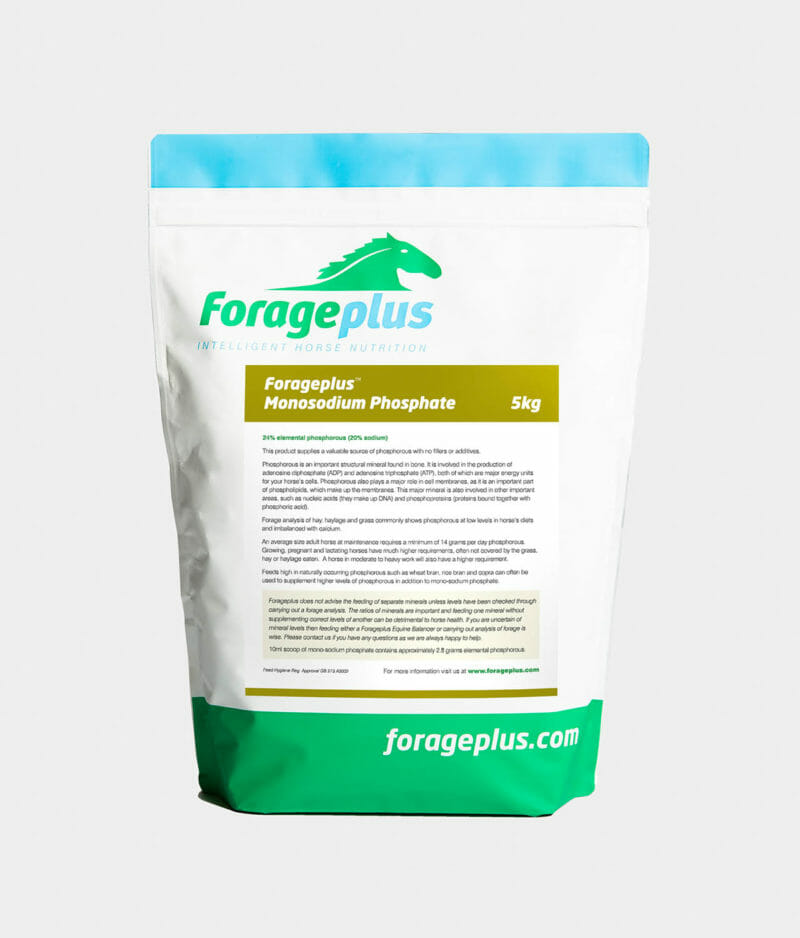
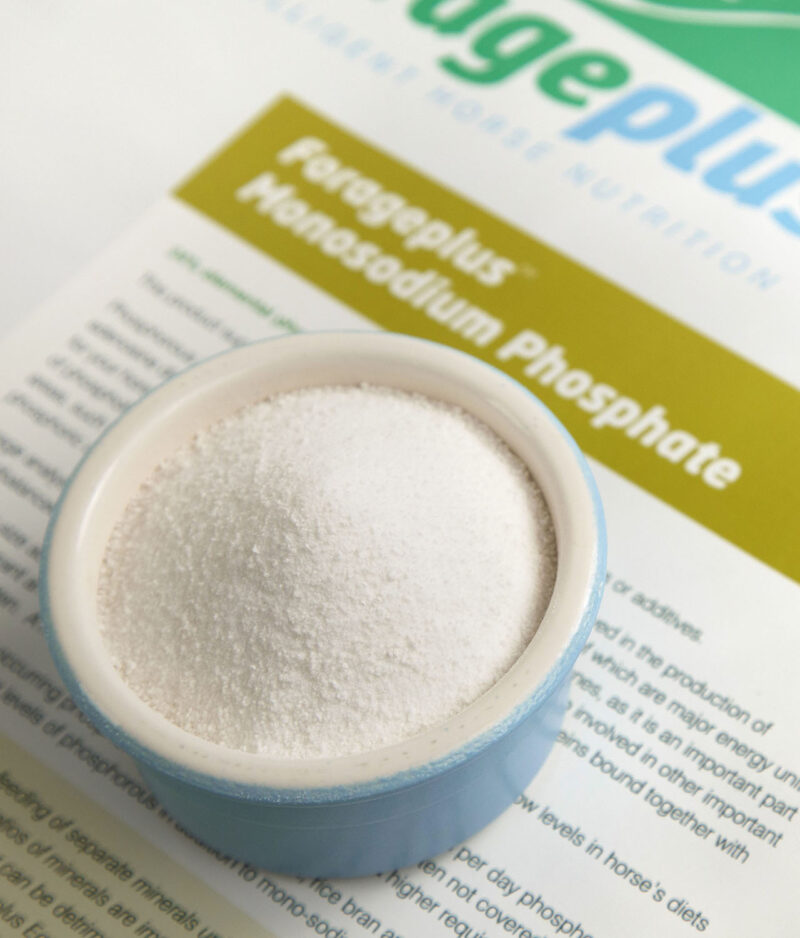
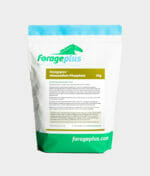
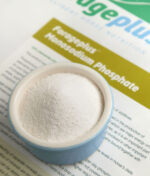
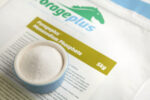
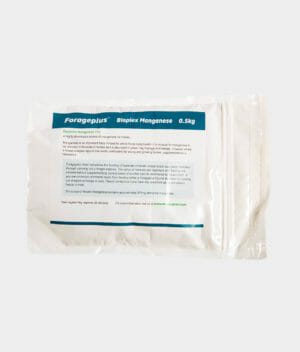
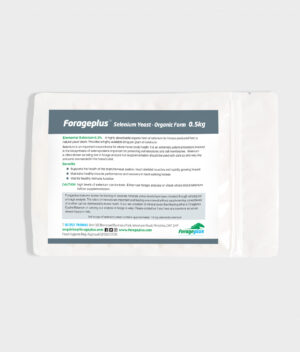
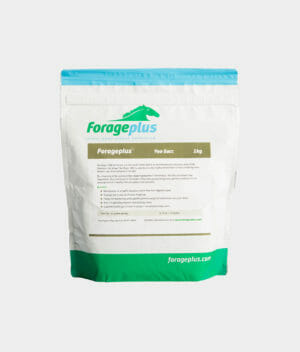
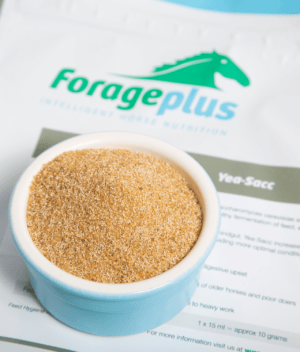
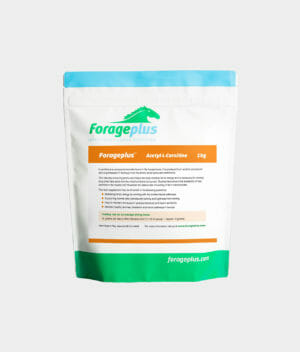
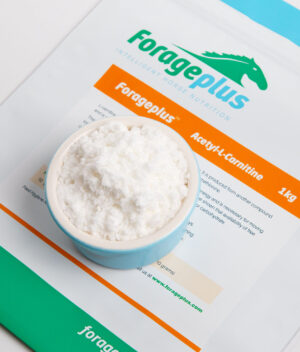
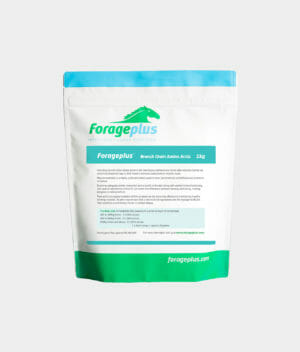
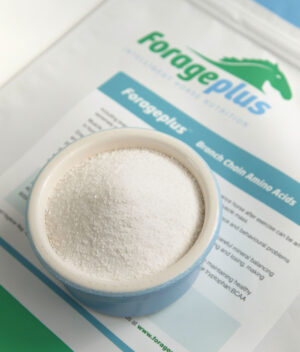
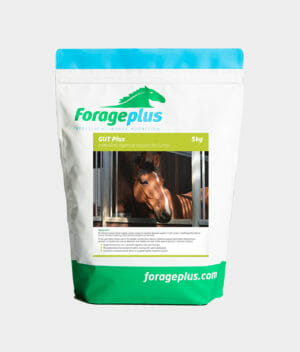
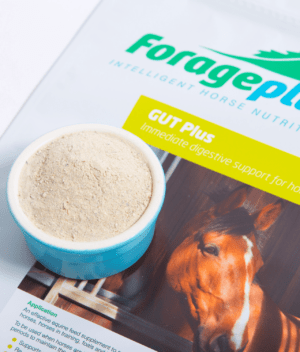

Audrey-Ann Bérubé-Boivin (verified owner) –
I have a few horses on different work level and needs and this permits me to easily adjust the correct amount of phosphorous required for each of them !
Laurence PERCEVAL (verified owner) –
In our region of Dordogne, the level of Calcium is so high it makes the Ph/Ca ratio very difficult to balance. I am so very pleased to have found a Phosphorus only supplement since most of them have Ca added which I do not need of course.
As a breeder, adding the Phosphorus daily enables me to have no OCD due to Ca overload.
Ella Livingstone (verified owner) –
We need to add quite a lot of phosphorus to balance our forage, and this is a very reasonably priced source. I have no doubt that the product itself is of high quality – the reason I’ve given 4 not 5 stars is that every so often we get a bag that is not a consistent powder, but has large (very solid) chunks in it. I just put these in a clean bowl and bash them to a powder with a hammer, so nothing is wasted but this adds quite a lot of work to the process!
Kim Turner (verified owner) –
I had a grass analysis done which showed high levels of calcium. This is great to balance that out.
Kelly Elliott (verified owner) –
Does exactly what is says on the packet and perfectly balances the high levels of calcium found in forage.